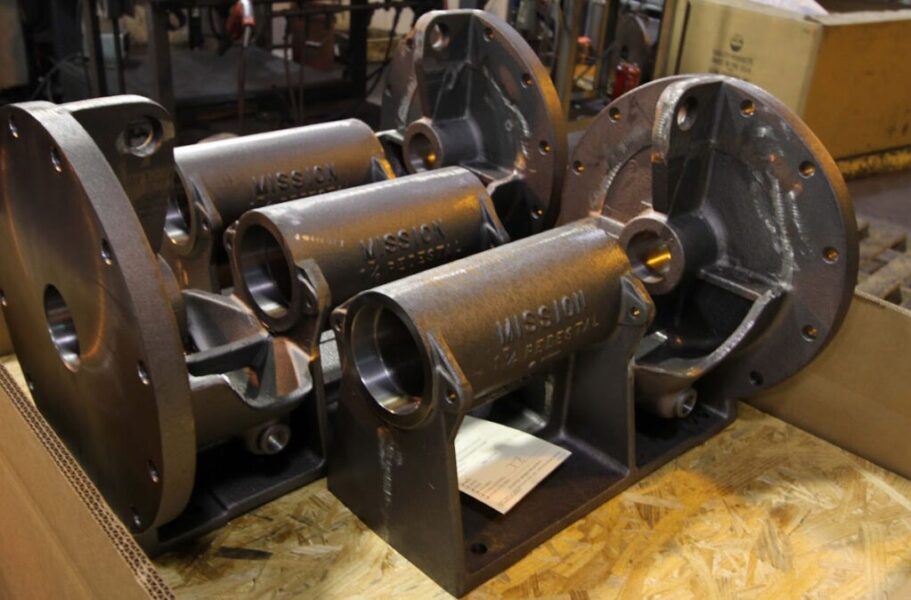Are you maybe too focused on your upfront cost per part?
When comparing domestic foundries versus offshore suppliers, the conversation often starts (and sometimes unfortunately ends) with, “What is the cost per part?” No doubt it’s a crucial consideration, plus it’s one that’s easy to see and measure upfront.
But that calculation ignores a whole list of other potential costs and complications that come with overseas suppliers. Plus it’s a line of thinking that has left many domestic sellers high and dry at some point in the last several years due to supply chain disruptions.
If you zoom out and look at the full product life cycle, the larger supply chain, the potential for delays, the other risks involved… you’ll start to see how reshoring your iron casting work to trusted U.S. foundries like Acme can actually reduce your total cost of ownership (TCO), especially in the medium to long term.
The Downsides of Offshoring: What the Traditional “Cheap Part” Argument Misses
It’s no secret that foundries in China and throughout Southeast Asia typically appear cheaper on paper. Labor is far less, raw material costs are usually lower as well as operational costs, plus currency arbitrage can work in your favor. But that’s only the first chapter of the story.
As your project unfolds, you run a number of risks by relying on iron casting foundries halfway around the world:
- Logistics and Freight Challenges – International shipments bring higher base costs plus unpredictable surcharges, demurrage fees, customs delays. What seemed like savings can vanish when shipping costs spike or schedules slip.
- Extended and/or Unreliable Lead Times – Worse when demand fluctuates or designs change. Long overseas lead times limit flexibility.
- Quality Control and Rework – When you’re far away, identifying defects late is costly. Rejected parts, returns freight, or worse, customer failure in the field.
- Communication Friction – Time zones, language differences, slower feedback loops can slow down problem solving.
- Inventory Carrying Costs – To avoid stockouts, many companies over‐order or carry extra safety stock from overseas; that ties up capital and storage.
- Supply Chain Risk and Disruptions – Global supply chains remain susceptible to geopolitical risk, pandemics, transportation bottlenecks, trade policy changes, rising tariffs—all of which can blow past “cheap base cost” assumptions.
Quality American Casting Solutions Since 1905
Reshoring your iron casting work is a strategic move that sets your business up for ongoing success. If you’re evaluating casting suppliers this year, do more than compare line-item costs. Build a full TCO model, ask about quality systems, communication practices, and logistical transparency. And when you do, Acme Foundry is ready to earn your trust, deliver consistency, and help you simplify your supply chain with quality Made in the USA gray iron castings.

